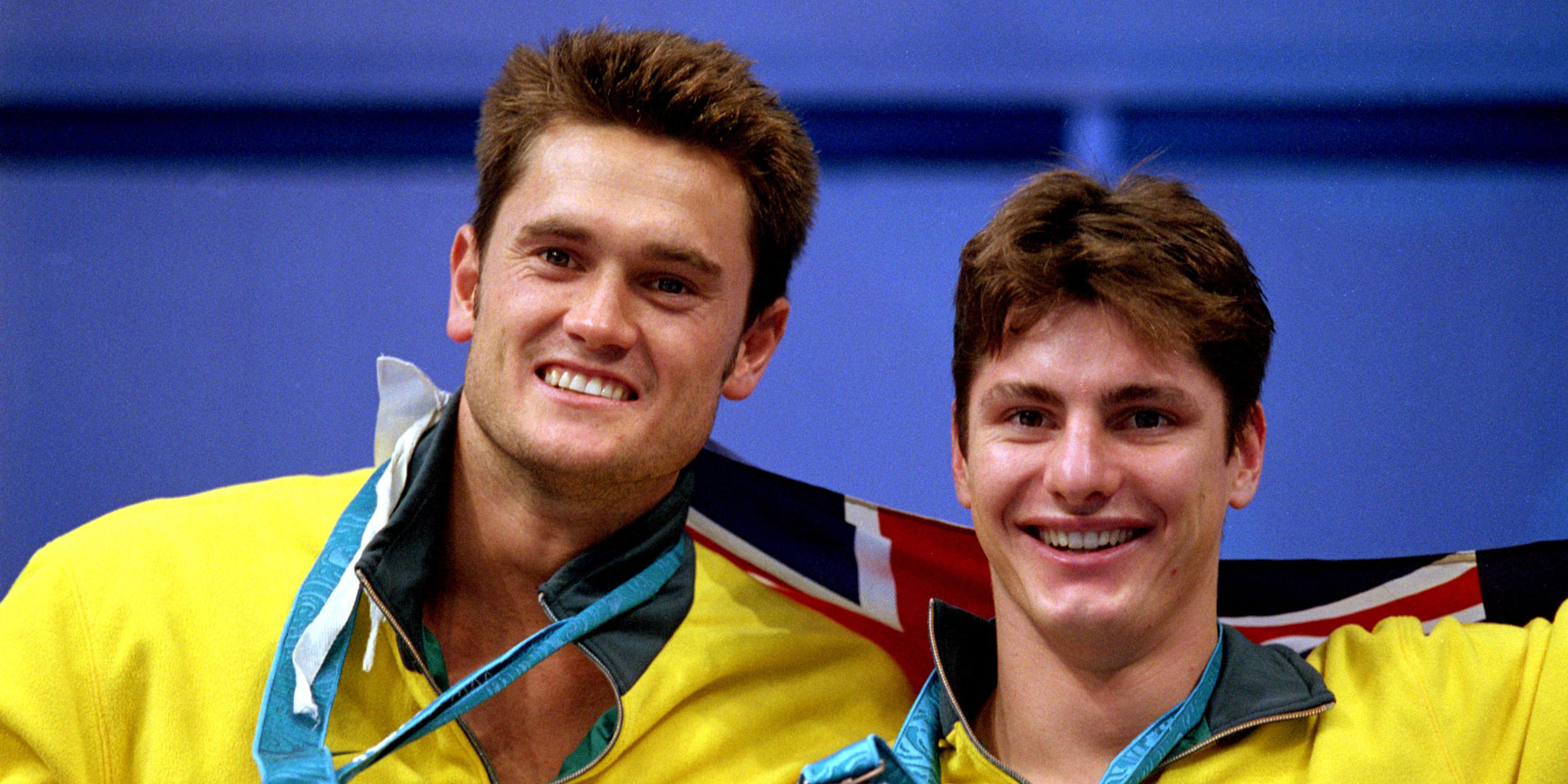Twenty years ago today long-time member, Dean Pullar, along with diving partner Robert Newbury, claimed bronze for Australia in the Men’s 3m Synchronised diving at the 2000 Sydney Olympics on a day that broke a 76-year drought for Australian diving.
“It was incredible,” Pullar remembers.“We were in second place going into the final round and we were the second last team to dive, so we knew that if we came up staying second, we’d be getting a medal.
“The crowd was going crazy and we were just standing there and thinking ‘one more dive, you’ve got that close to an Olympic medal. It’s time to deliver on the big stage – it’s what you train for, what you used to think about as kids’.
“They blew the whistle and it goes dead quiet. We did the dive, a reverse 1 ½ somersault with 3 ½ twist, and stood there waiting for 10-15 seconds watching the scoreboard. And then it was just exhilaration – knowing we were bronze medallists and no one could ever take it away from us. We did it.”
It was a fitting end to Pullar’s 2000 Olympics experience, which also saw him finish fifth in the individual 3m just days before.
But the Olympics wasn’t smooth sailing for Pullar, with a rough start to training in the lead-up to his event and an injury the day before the synchro finals.
“I was training terribly during the first week when the swimming was on. I always dived well in Sydney – I had my highest score there – but just wasn’t training very well.
“It’s such an artificial environment. When you go to Nationals or an event like that you are mingling with the public – you’re staying at hotels and catching public transport – but when you’re in the village you could go the entire time without seeing anyone who wasn’t accredited.”
“My parents had an apartment near Luna Park so I caught the train there and sat on the balcony for hours and had a bit of an epiphany and just thought, ‘get over yourself and get on with it’. And when I left the weight of the world was off my shoulders and everything started to fall into place.”
Until the final practice before the synchronised final.
On the last dive of practice the day before the synchronised final, Pullar pulled a muscle in his neck and couldn’t turn in one direction – the direction he twisted into his dives. He thought he wouldn’t be able to compete.
A combination of hot and cold packs and a local anaesthetic shot freed him enough to not only dive, but dive well enough to claim a bronze medal.
For Pullar, it was a lifelong ambition fulfilled.
His mother, born in Johannesburg in South Africa, was a diver who narrowly missed attending the Rome Olympics in 1960 before moving to Australia. Diving was in his blood.
It wasn’t until the trials for the 1992 Barcelona Games that Pullar began to think the Olympics were within reach. That’s when he started training, stretching and focussing more on his diving career, with the 1996 Atlanta Olympics firmly in sight.
However, Pullar would have to wait until 2000 to make his Olympics dream come to fruition.
“I really wanted to go to the 1996 Olympic Games. My parents and brother and sister were booked to come and watch me dive, and then I didn’t get selected in the team, which was disappointing at the time.”
“But I went over there to watch it, and it was the best decision I ever made. I was sitting there on the wrong side of the fence and seeing how the people in the crowd were supporting their home team I just thought ‘imagine being an Australian athlete at the Sydney Olympics’.
“For me, one of the biggest mind issues was to actually make the Olympics Games team. I tried in 1992 and 1996 and missed out. Making it onto the team was one of the biggest hurdles. It was through overcoming that fear of failure and hard work that I made it to the Games.”
Banner image credit: Mike Hewitt/ALLSPORTS via Getty Images.
Relive some of the highlights of the 2000 Sydney Olympics with the Australian Sports Museum as they celebrate 20 years since ‘the best games ever’. Follow the Australian Sports Museum on Facebook, Instagram and Twitter for more great memories.

